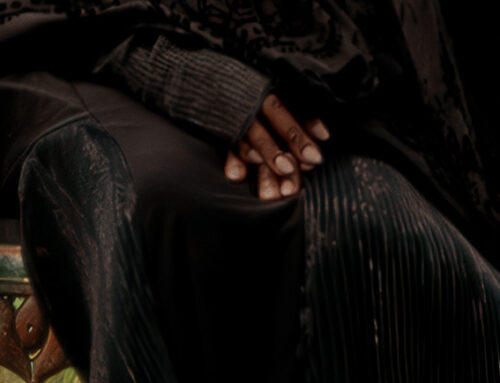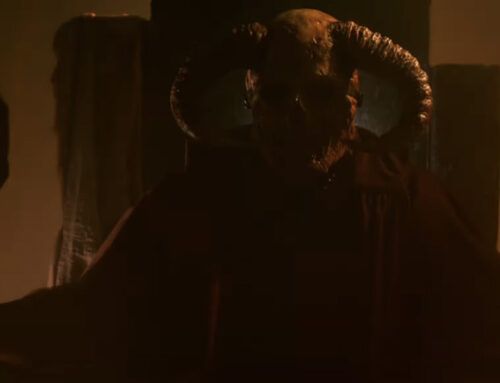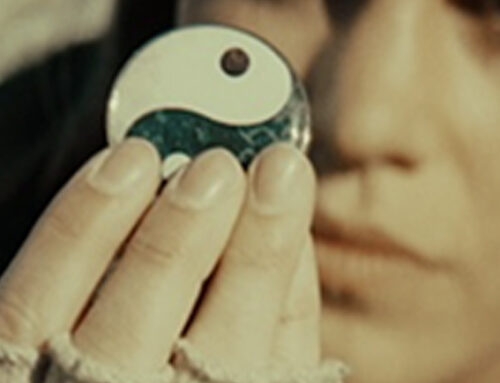Visit a true village of the damned in producer/director Fabrizio La Monica’s medieval horror film Dio Non Ti Odia (The Lord Doesn’t Hate You). This stew of a film, served Italian-style, was set at a low simmer in the beginning, but as it thickened with heavily religious plot elements and an uneasy atmosphere, the film turned into a rolling boiling that bubbled over into fiery flames. Now available on DVD in both color or black-and-white, The Lord Doesn’t Hate You is a film best served without color to help prepare the table for this horror set in the middle ages.
The Lord Doesn’t Hate You uses haunting imagery typical of classic religious horror films, though it has that special Italian je ne sais quoi where a character’s reaction is often used in place of dialogue. Uncomfortably widened eyes and tensed fingers capture the intensity of a scene and the actors who played the father and daughter executed this facial-focused method perfectly. Also, the story had an interesting structure by not being told in chronological order, jumping around to events that revealed betrayals and outcomes in order of intensity.
When a young village woman (Emilia Passalacqua) is told that she has a disease that is dangerous to others, her father (Roberto Romano) is tasked with leading her up a mountain to a cave said to be inhabited by a healer. Along their journey, they are followed by a few villagers who intend to impede their journey, but the family is able to press on. The daughter prays that the Lord will have mercy and save her from her illness, though as they near the cave, the true disease is revealed.
Director Fabrizio La Monica uses a backdrop of the Italian woods and gothic choral music to transport the audience to the middle ages. The character blocking, dark music score, and emotive acting kept the story coherent, though my interest admittedly waned during the journey up the mountain. The journey down the mountain, however, was absolutely chilling, existentially, though the film’s one jumpscare is pretty laughable. I could see that La Monica was perhaps going for more of a Bergman kind of horror though, who also frequently dealt with themes of time, death, and religion. I appreciate the similar artsy and metaphorical vibe found in The Lord Doesn’t Hate You, and I also found La Monica’s demon character, played by Ferdinando Gattuccio, to be reminiscent of Bergman’s infamous Death character from The Seventh Seal, as Gattuccio also mustered a brooding but subdued portrayal and was cloaked in black.
The last half hour of this film unleashes so much heartwrenching emotion because of the horrors of “the evil” that has cursed the village, though it turns out that true horror and evil also lies within man, who it seems is as capable as a demon. As man questions god, The Lord Doesn’t Hate You reminds us that ‘a God that can be understood is no god’ and that we are just at the mercy of whatever higher-up we can appease. I enjoyed the heavy themes and metaphors explored in this film — La Monica’s fixation on using flies as symbolism, for example, which foretell of death and decay in horror. The Lord Doesn’t Hate You is an Italian horror mood-piece that is certainly riddled with death and decay, existentially, and from the film’s body count, quite literally.







